5 min read
Babes in Dreamland: Masculinity in John Waters films, Part I
Author's note: This is the first in a two-part series on the portrayal of masculinity in the films of director John Waters. Part I covers "Pink...
3 min read
Bob Mizer Foundation : Updated on April 7, 2024

Author's note: This is part II of a two-part series on the portrayal of masculinity in selected films of director John Waters.
As the 'Me' Decade gave way to the 1980s, so too did filmmaker John Waters' movies become less vulgar and more marketable to a mainstream audience.
"In his earlier movies like 'Pink Flamingos,' 'Female Trouble,' and 'Desperate Living,' it was all about shocking moviegoers," says Den Bell, president and CEO of the Bob Mizer Foundation. "In those movies, the men were hippies. Unkempt, long-haired, with facial hair, too -- a lot like the men in Bob's later photos."
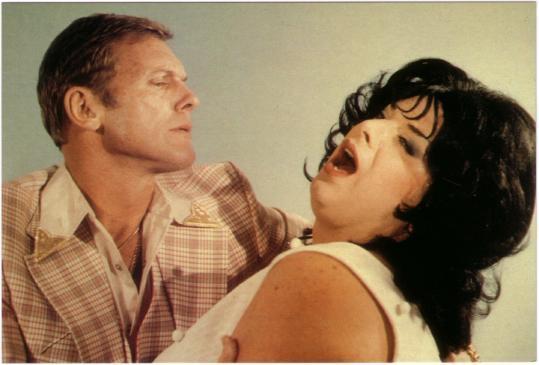
With the new decade came a new look for Waters' leading men, both leading men and villains. They more closely resembled the teenage hoodlums and bikers in Mizer's photos and films from the 1950s. Waters had developed a habit of casting musicians, mainstream film stars, and pop culture icons in his later films. The first was in "Polyester," a story about a suburban housewife, Francine Fishpaw (played by Divine), whose world slowly unravels as she faces one bizarre misfortune after another -- mostly at the hands of her unappreciative, trashy husband and children.
In "Polyester," Waters cast punk rock vocalist Stiv Bators as Bo-Bo, the equally punk teenage love interest of Francine's daughter, Lulu. As is so often the case in film and TV, Waters cast the 32-year-old Bators to play a teen.
"His hair was slicked back against his head, he chewed gum noisily, and he wore this basic white t-shirt underneath a black motorcycle jacket with spikes on it," Bell recalls. "But I distinctly remember his Bo-Bo character carrying a baseball bat, and in one scene, he takes his friends joyriding and they end up hitting pedestrians in the kneecaps as they sped by."
Stiv Bators' Bo-Bo was the guy your parents warned you about, and he was the first of several more stereotypically masculine male leads in Waters' films of the 1980s.
Francine's love interest, the fast-talking, hopeless romantic Todd Tomorrow, was a stark contrast to Bo-Bo the bad boy. Played by Hollywood star Tab Hunter, Todd Tomorrow was everything Bo-Bo was not -- sharply dressed, gentlemanly, well-spoken, successful. Audiences were already quite familiar with Tab Hunter himself, having enjoyed a decades-long career in film and music. Though much of Hunter's star had faded by the 1970s, "Polyester" marked a comeback of sorts for him.
Though the Waters film revitalized his career, the rumors about Hunter's homosexuality had dogged him since the 1950s, when his friendship with fellow film star Rock Hudson was the subject of seemingly endless speculation in a number of gossip magazines. He finally came out in his 2005 autobiography "Tab Hunter Confidential," and even confirmed that he had enjoyed a long-term romantic relationship with fellow actor Anthony Perkins (of "Psycho" fame).
"Here was this guy who was masculine in just about every sense of the word, and his career was a long one, and a very diverse one, in terms of film roles," Bell says. "In 'Polyester,' Tab Hunter plays this white knight of sorts, who comes in and sweeps Divine's character off her feet. He represents everything that she -- and most of us -- desire in a man."
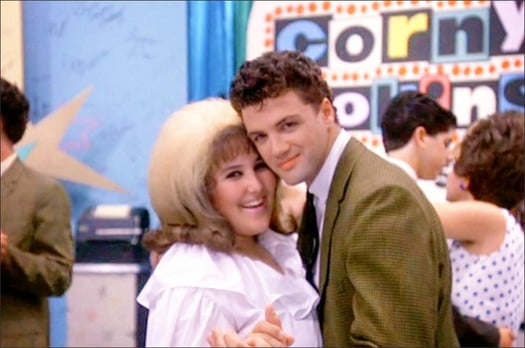
The male protagonist in Waters' 1988 "Hairspray" was Link Larkin (Michael St.Gerard; later portrayed by teen heartthrob Zac Efron in the 2007 remake), the subject of many Baltimore schoolgirls' fantasies. Sporting a pompadour hairstyle, shimmering double-breasted suit and skinny tie, Link crooned and shimmied his way into the hearts of all who watched the Corny Collins Show (Waters sure did enjoy alliteration, didn't he?).
The film's protagonist, Tracy Turnblad (played by an overweight Ricki Lake), catches Link Larkin's stunning blue eyes. The two develop a romance at which both dance and social justice activism play central parts.
St. Gerard has been described as a "moody, baby-faced hunk had the slick, sullen, magnetic good looks and rebel attitude of Elvis Presley," and others still might see a passing resemblance to adult film icon Jeff Stryker.
Again, here we have this outsider, this rebel, after whom everyone lusts," Bell notes. "But Link Larkin doesn't want just any girl. He wants the one who isn't considered traditionally pretty. That's interesting. Here are these bastions of masculinity, these greasers, and they want the person who doesn't stand out in a crowd like they do. It gives the rest of us hope, right? If Tracy and Francine can get a Link or a Todd, maybe the rest of us can."
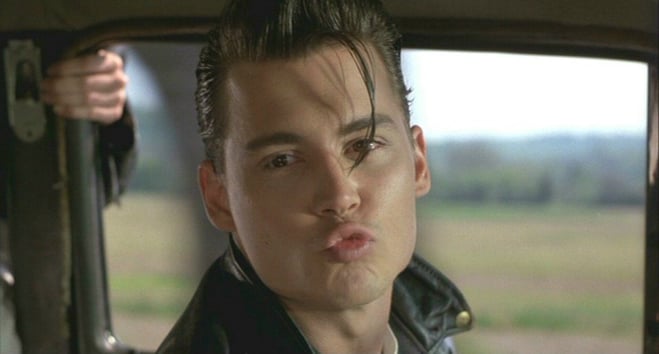
Waters' first film of the new decade featured a rising film star -- ever heard of Johnny Depp? -- play a teenage bad boy with a heart of gold in "Cry-Baby: (1990).
By 1990, audiences were only somewhat familiar with Depp, who'd had roles in "A Nightmare on Elm Street" and "Platoon" but hadn't exactly achieved star status just yet.
Depp's character, however, is given star treatment in "Cry-Baby." Sporting a pompadour hairstyle, black leather jacket and motorcycle, Depp's character, in the title role, is a juvenile delinquent who appears both mesmerizing and mysterious to the girls around him. Treated as nothing short of a diety, Waters' "Cry-Baby" is a salute to juvenile delinquent films of the 1950s and -- one has to notice -- the hoodlums who wrestled and wreaked havoc in Bob Mizer's earlier films.
"The homage to bad boys is there, right along with all of the campy references to the '50s and doo-wop culture. And Johnny Depp's Cry-Baby is unmistakably masculine in the traditional sense here. That's interesting when you consider that he later became famous for playing an effeminate pirate," Bell says, laughing.
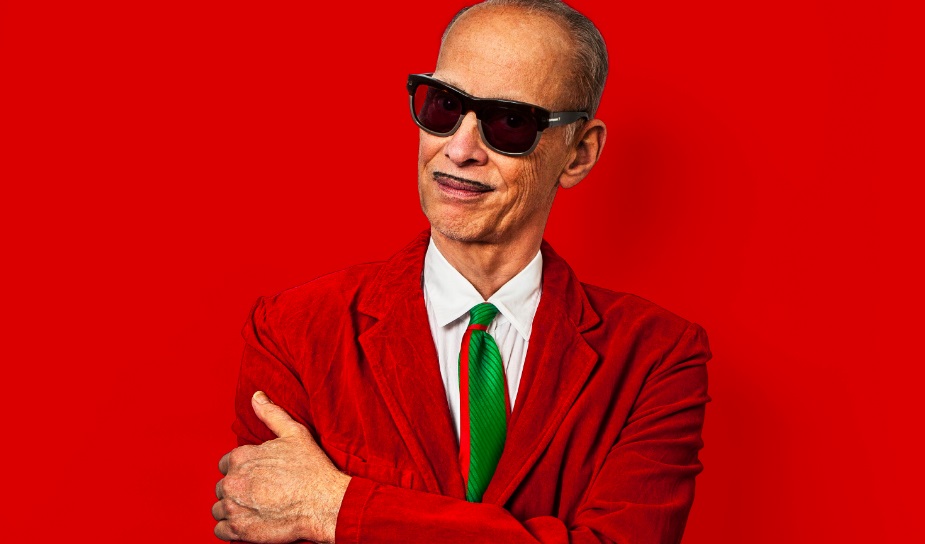
5 min read
Author's note: This is the first in a two-part series on the portrayal of masculinity in the films of director John Waters. Part I covers "Pink...

Bob Mizer's works can be found in contemporary galleries and exhibits the world over. But dig a little deeper into a museum's archives and you'll...
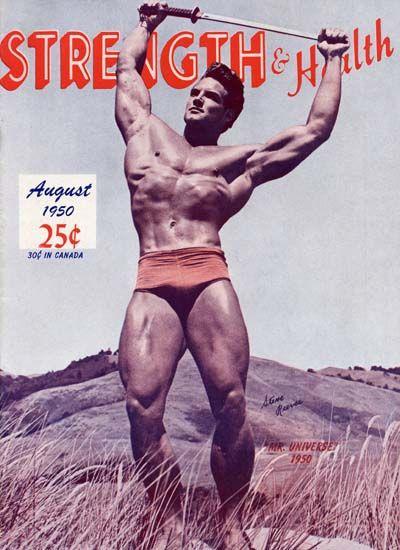
Though Bob Mizer's Physique Pictorial offered a knowing wink to male readers who viewed the models within its pages as much more than just a picture...
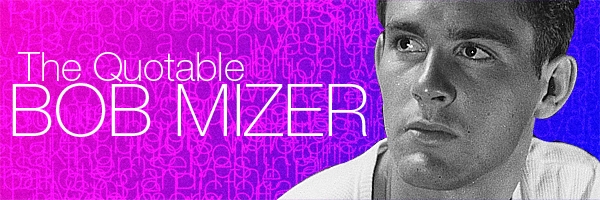
Mother’s death created quite a jolt for all of us, though we had all expected it. The first few days found me going into tears several times, but...